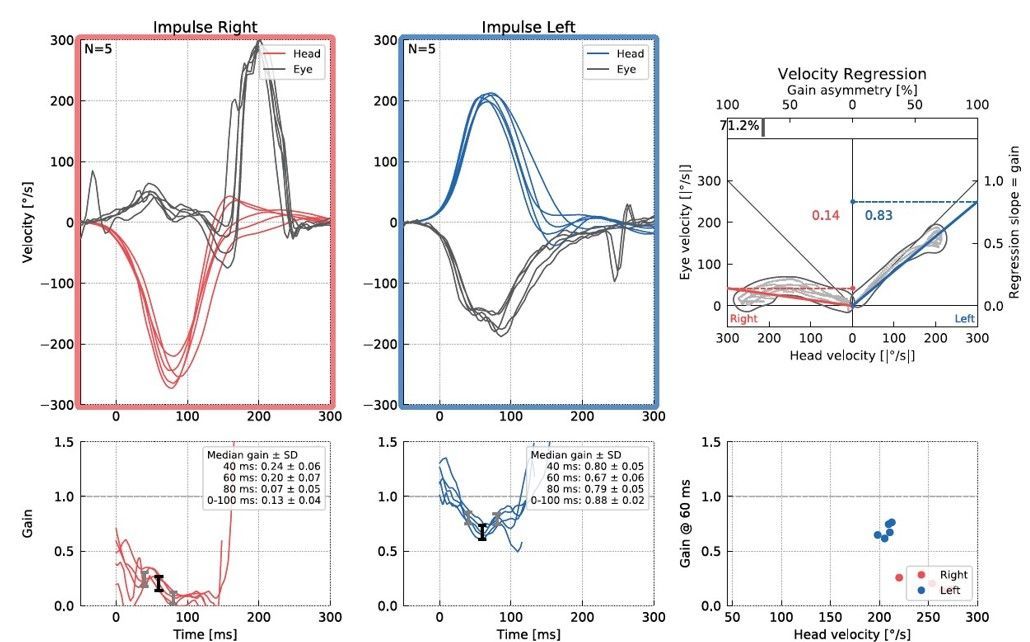We are ready!
GET A QUICK DIAGNOSIS AND TREATMENT FOR DIZZINESS AT THE HOSPITAL!
"Virus on the vestibular nerve" is not actually a virus but a prolonged dizziness condition, typically causing persistent seasick sensations and vomiting for several days in a row, gradually improving over weeks. With a correct diagnosis using advanced equipment (known as VHIT equipment) and a thorough medical examination, more serious conditions can be ruled out with a very high degree of certainty.
Charlottenlund Privathospital uses the latest and best equipment from Interacoustics to provide a correct and fast diagnosis. This is crucial because treatment for vestibular neuritis needs to begin within 48-72 hours, but also because some types of strokes can present symptoms that are difficult to distinguish from vestibular neuritis.
At Charlottenlund Privathospital, we always have emergency appointments available for quick and accurate diagnosis of vestibular neuritis and to rule out other more serious conditions. Therefore, it is important to seek help promptly.



